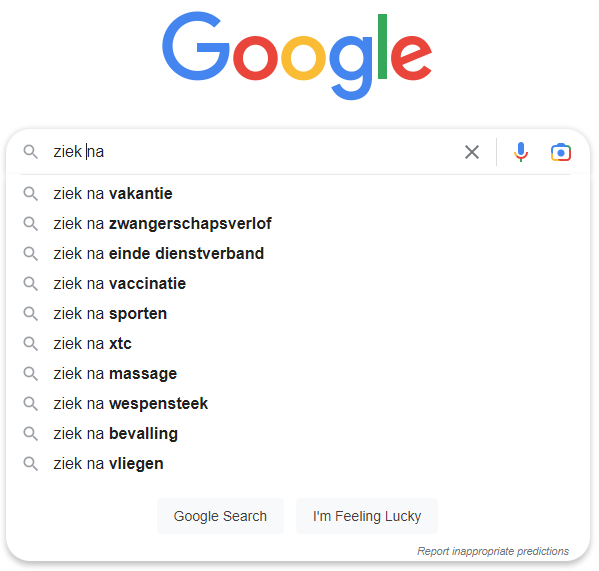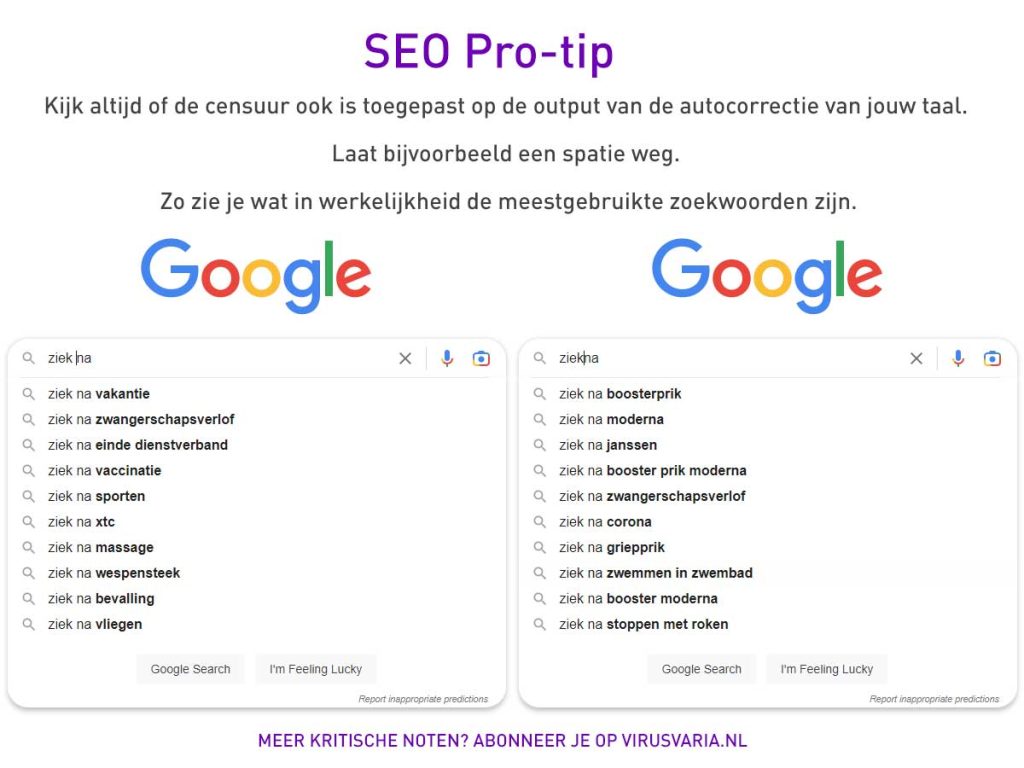Β© Illustration: Mick Boskamp, Maurice.nl
The fact that Big Tech cooperates with governments is not only reflected in the WOB documents. Together they are also stronger. Big Tech is very keen not to kick the shins of governments, call it a kind of 'self-regulation'. What is possible in one country, is not possible in another. So there are consultation structures in which Google can determine per country what is allowed according to the incumbent and what is not allowed. After all, governments can block their platforms for reasons that can vary from government to government. Combating terrorism, for example, is part of this, as is combating harmful information.
Just like Facebook, Twitter and other mass media (national broadcasters, national newspapers), Google has a powerful weapon in its hands: democracy. With adapted reporting, they influence the support for the policy to be pursued by the incumbent government. When national media, Big Tech and governments "talk with one mouth", it is an attack on democracy as it was once intended. By providing one-sided information, in line with the narrative of the incumbent, and cancelling everything that is not in line with it, public opinion is influenced and voting behaviour and referendums can be steered in the desired direction. Thus, any pre-cooked plan can be presented as a democratic decision.
But the Ministry of Truth is not infallible. Sometimes something slips through that smells strongly of manipulation. For example, the search results on Duckduckgo may differ from those of Google, especially if you enter searches with typos. Search engines are very smart at understanding what you might mean. They do so based on the millions of searches that are entered and compare them with your own search behavior or what is trending (see explanation from Google). Typos are adjusted on-the-fly. Google is very strong in that β except sometimes, with disinformation, for example. At the moment, this is mainly information that could be at the expense of the willingness to vaccinate β because the previous and the incumbent cabinet have put a lot of effort into this.
Pharmaceutical criticism is therefore out of the question, we know that. Now suppose you have heard of a critical book "The Real Anthony Fauci" but you do not remember the title exactly so you start tapping "the real tony". Then search engines deal with it very differently and some are suddenly not so smart anymore.
Auto-complete: DuckDuckGo vs Google
Searching for "The Real Tony" in DuckDuckGo (just like Bing) in 3 of the 8 search suggestions indeed gives the book we are looking for, I have highlighted them yellow. Google gives 10 search suggestions, not one of them refers to Kennedy's book. That looks like a boycott by Google. Market distortion? I thought that was not allowed. But yes, that's what I thought of Gain-of-Function research and I see raised virological middle fingers again from Boston (link at the bottom of this article).
What Google doesn't want to show
If people are sick after getting their jab, are they going to look for it? The search suggestions can give clues to this. If you type in: "sick after" then Google gives suggestions thanks to the 'auto-complete' so that you can see what people search for a lot. I don't know how the order of those suggestions is determined, but I would expect the most searched terms to be at the top. In any case, they are not tailored to my location or interests: I rarely go on holiday anymore (preferably in my own country), I have never had maternity leave and I will never get it again and my last employment was terminated about 30 years ago.

If I look at the whole list, only "vaccination" is interesting for me. But that is only in fourth place, apparently it is being searched less often than "sick after the end of employment". While a lot of fewer people have recently been fired than poking has been put.
If you make the search less clear due to a typo, Google will have a harder time. Then the auto-correction has to get started. For example, removing spaces is a mean trick. It seems as if a filter is then skipped by the auto-correction, a filter that otherwise runs along:

Where does Google suddenly get this wisdom from? Here only "sick after Pfizer" has been filtered out! That has to be because only Moderna and Janssen are called while almost half of the puncture has been put with Pfizer.
So it's definitely alive. Not everyone who searches has side effects of course. It is only to indicate how information is played with.
Walkthrough
The bug will be fixed so if you want to try this yourself, do not wait too long. In the video below you can see how I did it.
.
The article A virological middle finger from Boston with the greetings of Dr. Fauci has been moved to this post
P.S.: Also nice for search engine optimization of websites. Always good to know which keywords people really use






A very interesting podcast to watch on this topic is the conversation Joe Rogan had with Prof. Robert Epstein. He has been researching manipulation by Google for years. A word of warning, if you have listened to this, you will never trust Google again.
https://open.spotify.com/episode/4q0cNkAHQQMBTu4NmeNW7E